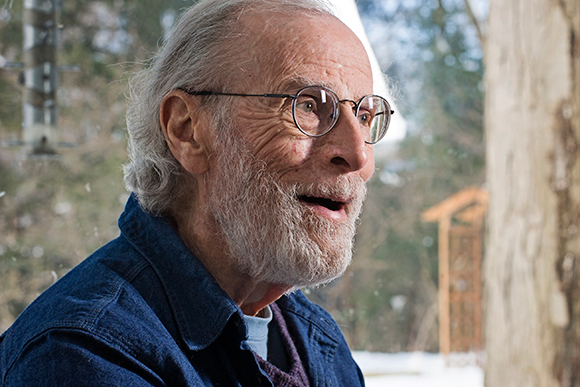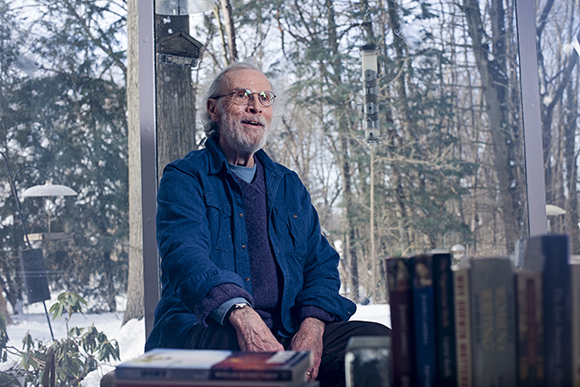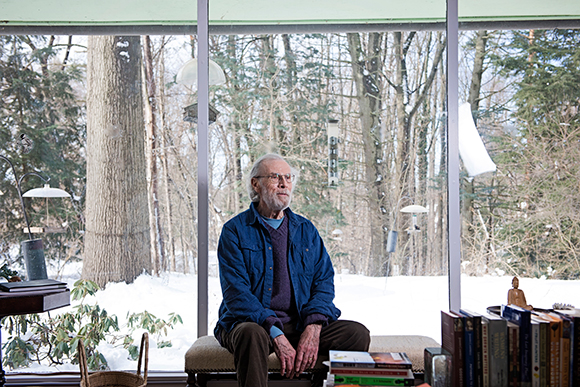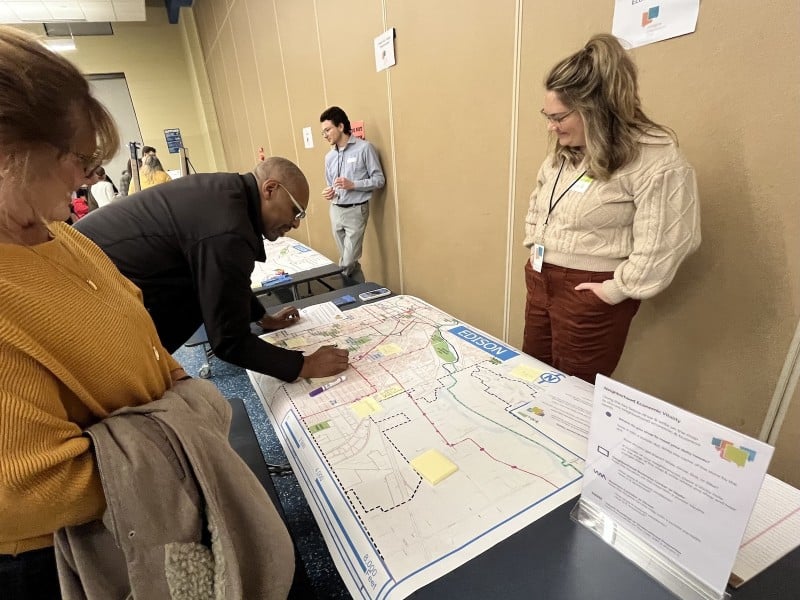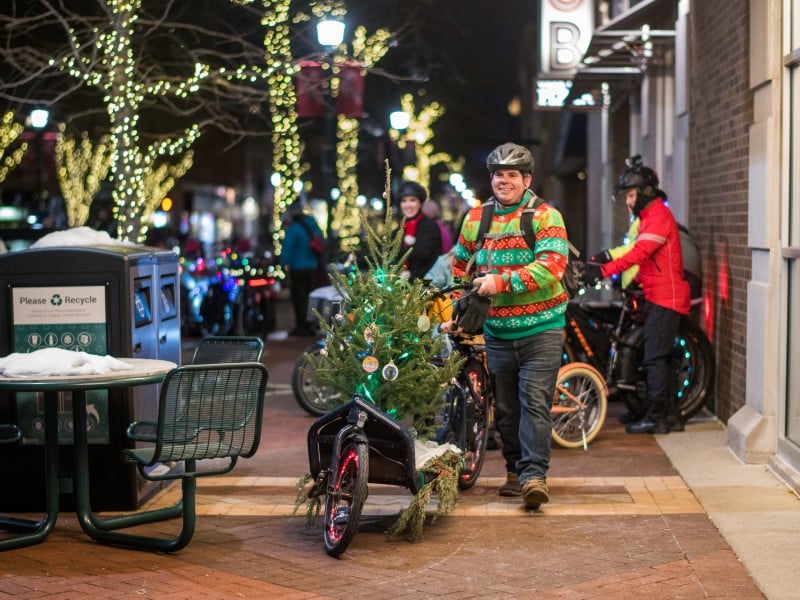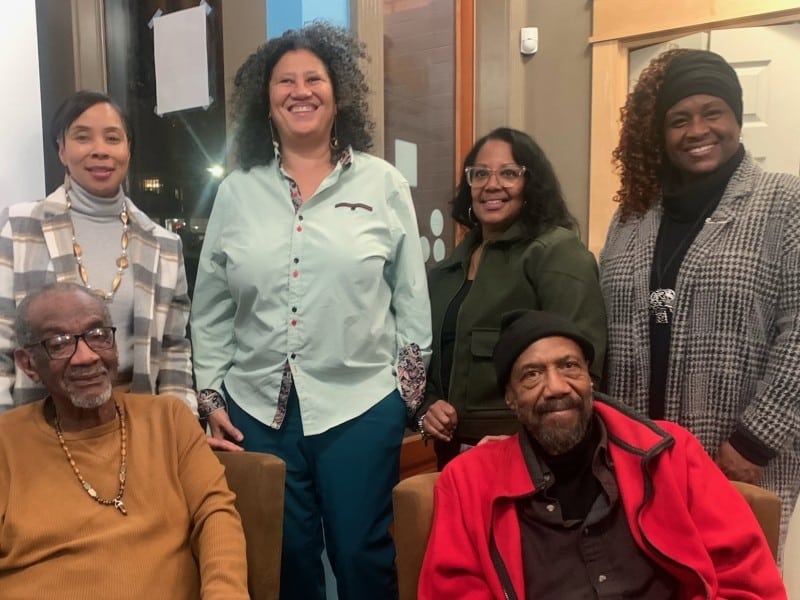A revolution that can change the world, one backyard at a time
As the world changes at a pace that is impossible to keep up with, a grassroots movement wants to help communities cope with what's ahead. Zinta Aistars has the story on the Transition Movement.
Even fans of snow say this past winter has been a bone chiller. In fact, it’s been one of the warmest winters on record.
“It’s been the fourth warmest January on record for the globe,” says Tom Small. “That’s the big picture people keep missing. The polar vortex was caused by the warming temperatures far up north.”
Tom Small is professor emeritus of English at Western Michigan University, but he has a second passion that in retirement years has grown to be his foremost work.
Small spends his time now teaching others about climate change and offering suggestions for what he calls a Climate Action Plan.
“I’m still a teacher,” he says. “It’s who I am.”
He, along with his late wife Nancy Cutbirth Small, is the author of “Using Native Plants to Restore Community in Southwest Michigan and Beyond,” a project he completed after her death in 2009.
The Smalls also co-founded the Kalamazoo area chapter of Wild Ones, or KAWO, a nonprofit organization that encourages people to learn about and plant native plants.
Going native is a large part of Small’s Climate Action Plan, a plan he has been sharing in a busy schedule of presentations.
Two recent presentations have included “Biodiversity and Climate Change: Towards a Climate Action Plan for Kalamazoo,” “Climate Change and the Transition Movement to Resilient Community,” and a public conference called “Biodiversity and Climate Change: Towards a Climate Action Plan for Kalamazoo,” sponsored by Kalamazoo Nature Center and Kalamazoo Area Wild Ones.
Small and the Wild Ones are in the second year of presenting a two-year series, “Saving Native Plant Diversity: Promoting and Preserving Biodiversity,” that they offer on Wednesdays at 7 p.m., at First United Methodist Church, 212 Park Street, downtown Kalamazoo.
Small and his current wife Ruth give tours of their personal gardens. The Wild Ones take people on field trips to various preserves and nature areas, including theirAn upcoming presentation will be held April 26 at W. K. Kellogg Biological Station, 3700 East Gull Lake Drive in Hickory Corners, as part of Garden Education Day.
Returning to native plants, Small says, is part of the growing Transition Movement, a grassroots movement that seeks to build community resilience in the face of such challenges as peak oil, climate change, and the economic crisis.
“Although we’re not doing it fast enough. We are losing bees, butterflies, plants–our biodiversity is decreasing. That’s dangerous. Diversity is what gives a system resilience. Resilience is how we handle a crisis. A monoculture is very vulnerable to destruction.”
The Transition Movement goal, Small explains, is to localize resources and skills within the community rather than the recent trend to globalize. As of January 2013, there are 130 Transition movements (or Transition Towns) in the nation and 452 worldwide working toward that goal, according to Transition Van Buren/Allegan.
“The community as a whole should support its own citizens as much as possible,” he says. “That doesn’t mean cutting off others, but we need to re-learn what our grandparents knew how to do. We need to regain control over our own food supply, energy, resources. Right now we are too dependent on this gigantic grid, but we need to become more interdependent within our own communities.”
Small is working to establish a Transition Kalamazoo chapter to gather people who want to learn more about the movement in the greater Kalamazoo area. Reskilling, or learning the basic survival skills that came so naturally to our ancestors is part of the Transition Movement–growing, preserving, storing and foraging our own food; making and mending our clothing; building structures; making our own natural medicines.
“Can we change the whole planet?” he asks. “No. But we can do many things in our own neighborhoods and in our own communities. If we wait for the government to do it, it will be too little, too late. But first we need to admit that this is real.”
Much of what we can do begins in our backyards, he says. Or front yards.
His own front yard is mostly prairie, Small says. “We don’t cut it down, and we live near downtown Kalamazoo. Some may call it messy, but we won’t cut it down until fall, then use the grass as mulch.”
Small considers the manicured lawns of suburbia that encourage non-native plants brought in from Europe to grow where they were not meant to grow as cause for the decline of biodiversity. With the constant changes in Michigan weather, these lawns lack the resilience needed to survive without what he refers to as “violent gardening.”
“My message is one of non-violence, not just between humans, but also between humans and the earth. There’s violence in how we garden today, how we farm, how we tidy up our lawns. We kill dandelions as weeds, but dandelions are the first food of bees in the spring. When we eliminate ‘weeds,’ we eliminate essential food that supports our pollinators throughout the seasons.”
Small’s advice to gardeners is to plant wildflowers along with vegetables, and to replace non-native plants with plants and trees native to Michigan.
“As climate changes, native plants will be those that can survive and handle the extremes in our weather. My ancestors came over from Ireland during the potato famine, because the government back then forced people to plant only one variety. When disease attacked that one variety, the whole of Ireland and surrounding areas suffered famine, but native plants, and diversity in plants, evolve with the changes in the environment. If one part of the system is eliminated, another part prevails. You have resilience.”
Transition movements in Van Buren and Allegan counties conduct fairs and other events to inform people about how they can participate in improving biodiversity with sustainable practices and become less dependent on outside food supplies, energy and other resources.
“We can do it.” Small nods. “Together, we can do it. It’s a learning experience. There are no guarantees in life, and for a long time, we didn’t realize what we were doing, but more and more of us are waking up. We can start by working in our own backyards. That’s what transition is all about.”
Photos by Erik Holladay.

